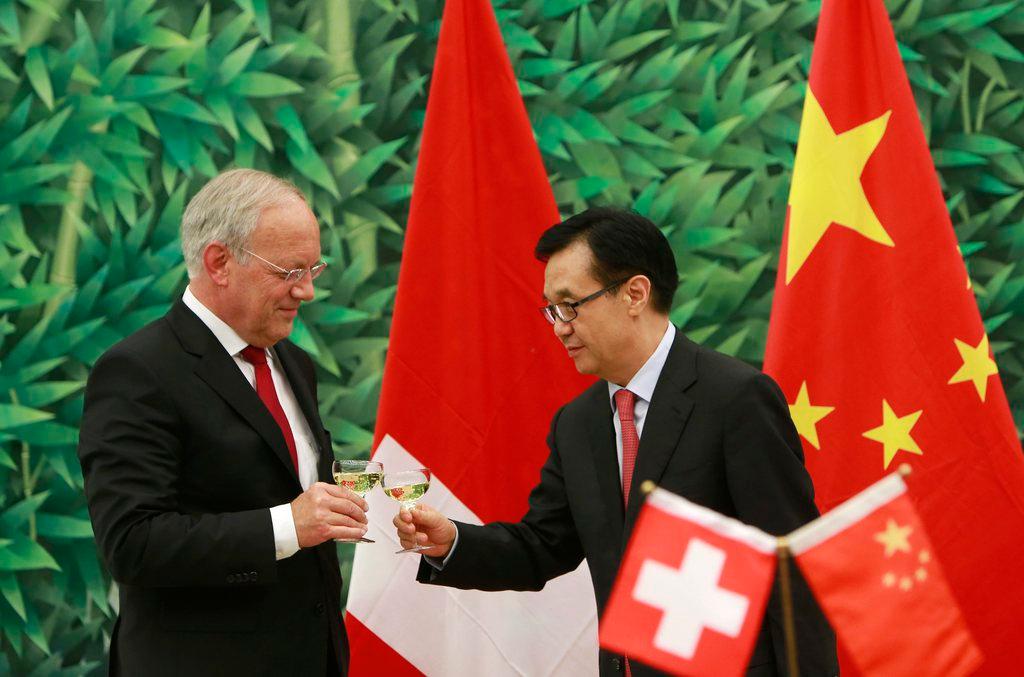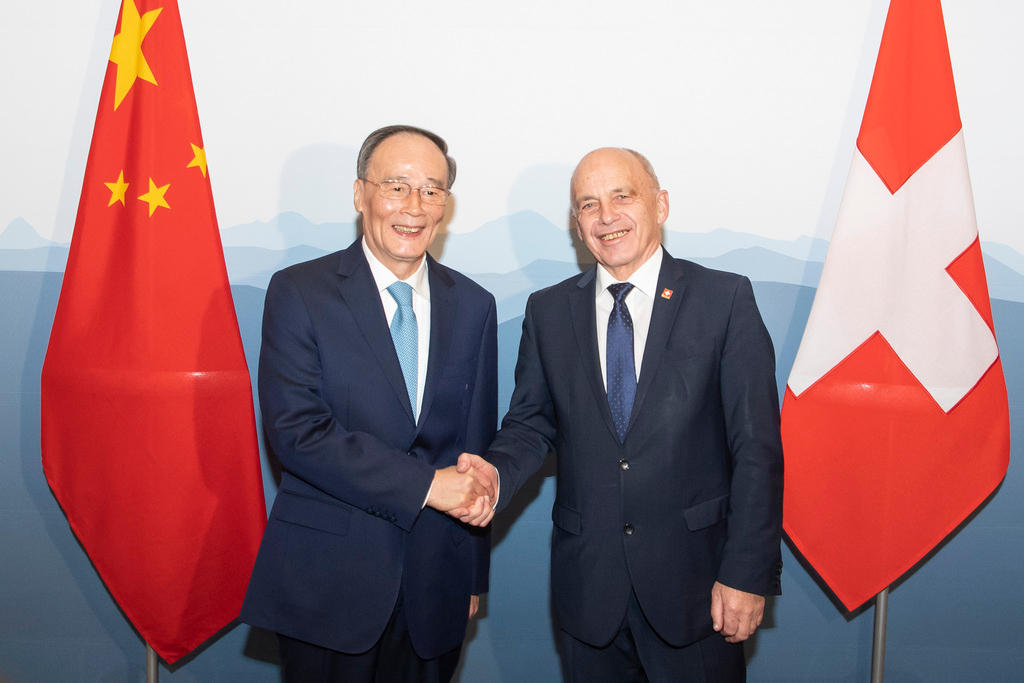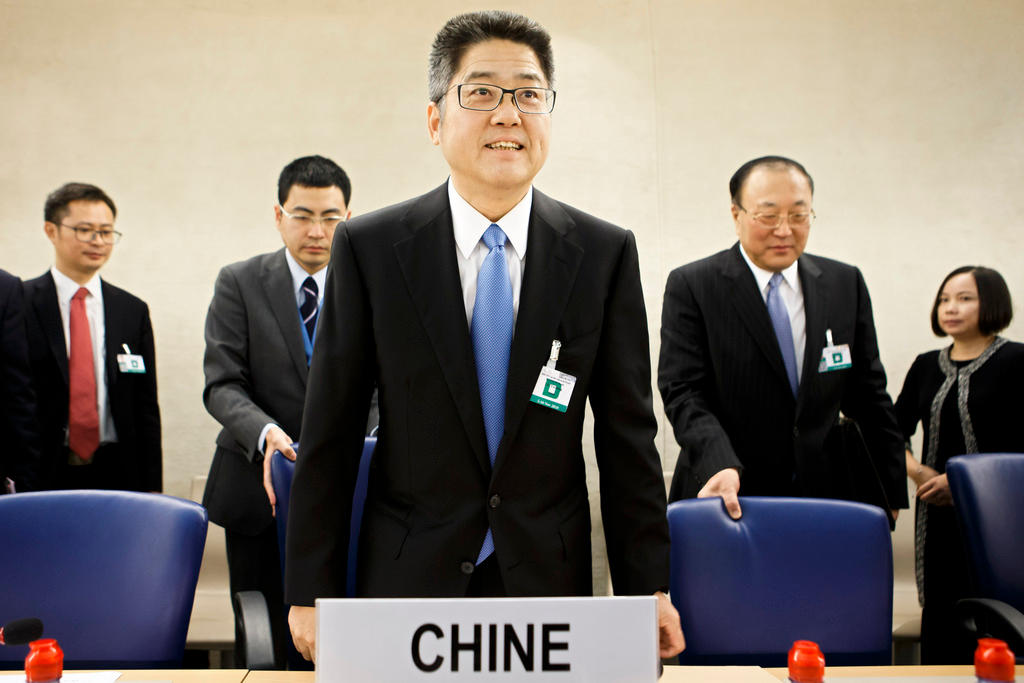How Switzerland lost and regained its Chinese ‘friend’

Chinese President Xi Jinping is currently in Europe promoting his signature Belt and Road trade project. There are no plans to stop off in Switzerland. There’s no point, since the two countries have had close economic ties for a while. Exactly 20 years ago, however, the friendship turned sour.
Switzerland was one of the first Western countries to recognise officially the People’s Republic of China not long after its establishment in 1949.
But on March 25, 1999, this special relationship took a distinct turn for the worse. Arriving at parliament in Bern during an official visit to Switzerland, then-Chinese president Jiang Zemin struggled to contain his anger at the sight and sound of pro-Tibetan protestors. “Switzerland has lost a friend,” he declared.
Since that memorable diplomatic hiccup, things have returned to normal between the two countries – to the point that Switzerland has been calledExternal link a sort of “bridgehead” in China’s search for influence in Europe.
In April 2016, Johann Schneider-Ammann, who held the rotating Swiss presidency that year, travelled to Beijing. Less than a year later, President Xi visited Switzerland to attend the annual meeting of the World Economic Forum in Davos.
Free-trade agreement
A latent trade war currently exists between China and several Western countries, notably the United States. Not with Switzerland though. Sino-Swiss economic ties were deepened by a free-trade agreementExternal link (FTA) that came into force on July 1, 2014. This is one of the few FTAs that China has signedExternal link with countries outside the Asia-Pacific region.
Billed to save Swiss companies CHF290 million ($292 million) annually by the time all trade barriers are lifted in 2023, a study last year found the FTA had achieved savings of CHF100 million for both Swiss and Chinese firms in 2017.

More
‘Glass half full’ rating for Swiss-Chinese trade deal
Financial relations
Switzerland has also strengthened financial ties with China over the years. In December 2018, UBS became the first foreign bank to gain majority control of a financial institution on mainland China by increasing its stake in the UBS Securities joint venture to 51%.
In 2016, the China Construction Bank (CCB) became the first Chinese bank to open a branch on Swiss soil. CCB was followed by the Industrial and Commercial Bank of China a year later. The development has cemented Switzerland’s position as a renminbi trading hub.

More
As Chinese economy slows, Swiss seek greater access
Investment
China has invested massively in the West, and Switzerland is no exception. More than 80 Swiss companies are now in Chinese hands, with a total value of CHF46 billion. The $43.3- billion takeover of agrochemical giant Syngenta by the China National Chemical Corporation (ChemChina) in 2016 is the biggest acquisition ever by a Chinese company.
However, China’s economic influence has also provoked criticism and resistance, notably from some members of Swiss parliament who recently asked the government to look into introducing investment controls on Chinese companies.

More
US lobbies Switzerland to drop Chinese telecom giant Huawei
(Translated from French by Thomas Stephens)

In compliance with the JTI standards
More: SWI swissinfo.ch certified by the Journalism Trust Initiative












You can find an overview of ongoing debates with our journalists here . Please join us!
If you want to start a conversation about a topic raised in this article or want to report factual errors, email us at english@swissinfo.ch.